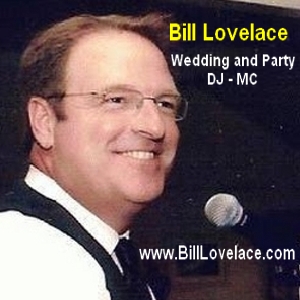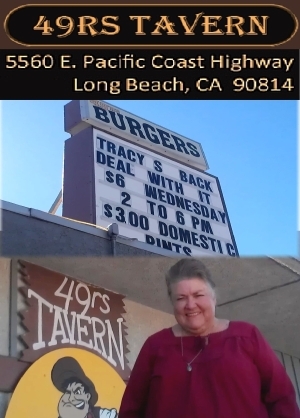The HB Council approved a motion to direct city staff to report back to the Council again in 90 days with further details on the cost-reduction option and also invite a previously invited scientist to testify the next time the Council considers the matter. (HB city staff indicated that the scientist preferred to testify when decisions would be made, inviting the inference that if the doctor attends, staff might propose and the Council might make some decisions in roughly three months.)
The HB Council's actions follow a decision by the Irvine City Council to implement non-toxic means with similar actions or their consideration by some other CA cities...to date not including the City of Long Beach, despite efforts by a number of LB residents urging a non-toxic approach in LB parks (details below).
Sponsor | Sponsor |
As previously reported by LBREPORT.com, as of July 7 the CA Office of Environmental Health Assessment (OEHHA) lists glyphosate, the active ingredient in the Monsanto-manufactured "Round-Up" herbicide, among chemicals "known to the state to cause cancer" for purposes of Proposition 65. Monsanto says its product is safe, has called OEHHA's action unwarranted based on science and the law and vows to continue its ongoing legal challenge to the state agency action.
HB city staff's report (visible here.) indicated that "Manual Weed Abatement & Chemical Free Application" was the least costly of three options and "more effective than organic chemical applications and poses no risk to the public."
Manual weed removal (including weed-whacking) is the method that veteran LB parks advocate Ann Cantrell has repeatedly urged LB to implement in LB parks (combined with weed-deterring mulch surrounding trees.) A grassroots Facebook group -- the "LB Coalition for Non-Toxic Parks and Schools" -- has urged the LB City Council to agendize the issue for discussion and action. To date, no LB City Councilmember has done so.
[Ed. note: Long Beach residents previously had the right to agendize items themselves to force Council considertaion of issues, but in the mid-1990s [during the O'Neill administration and prior to LBREPORT.com], the City Attorney's office agendized an item listed as changing the order of Council business...which erased the previous period allocated to items agendized by the public. A Council majority could restore thw public's previous right to agendize Council items but hasn't done so. In LBREPORT.com's opinion, restoring the public's right to agendize items should be among issues in April 2018 Mayor/Council elections.]
Last year, LB's non-elected (Mayor chosen/Council approved) Parks & Rec Commission and its staff discussed the issue and after testimony by Ms. Cantrell and others, LB parks staff indicated they would test of three alternative substances, and returned about six months later to tell the Parks & Rec Comm'n that in staff's view [paraphrase] the alternatives either didn't work well enough or were too costly.
Sponsor |  |
On June 27, 2017, City Hall's then-Public Affairs Officer [recently moved on to LB's Port] Kerry Gerot in the City Manager's office told LBRPEORT.com:
At this point, the Parks Recreation and Marine Department is monitoring and tracking any direction issued by the State Agency regarding the use of Roundup to see how it will be further regulated and any new requirements going forward. The department currently follows all State and Federal standards and legal requirements necessary for the use of this product and does not use Roundup in any picnic, food serving, sports field or playground areas with the majority of the use in areas such as tree wells, fence lines and road/curb edges where it is not practical or efficient to use mechanical methods.
Meanwhile, the Long Beach Unified School District halted its use of Roundup in November 2016. LBUSD spokesman Chris Eftychiou tells LBREPORT.com that although the herbicide will be applied during the summer break, it will only be used at schools where there are no planned summer activities.
Sponsor | Sponsor |
Among those advocating an end to using Roundup in LB parks and urging the Council to agendize the issue has been former 5th district Councilwoman Gerrie Schipske, currently mulling a write-in run against her successor, Councilwoman Stacy Mungo.
At the May 23, 2017 LB Council meeting, Councilwoman Mungo, whose district includes the largest park acreage citywide, effectively signaled her view on the use of Roundup (without explicitly taking a position on the matter.) It happened when a 5th district resident, Raman Vasishth, came to the Council podium and indicated that two other residents had wanted to tell the Council (but couldn't remain through the lengthy Council meeting) that Huntington Beach and Irvine had banned Roundup and said Long Beach should use those cities as a benchmark for weed killing. He was partially right; the Irvine City Council voted in 2016 to stop using Roundup and Huntington Beach's Council voted on May 1 do begin its pilot study.
Councilwoman Mungo didn't acknowledge what Irvine's Council is doing (see below), chided the resident for misstating what Huntington Beach's Council is doing (pilot study) and instead recited what amounts to LB city management's current stance.
"Huntington Beach does not ban Roundup," Councilwoman Mungo said. "They have the same policy we do, that we don't use it in playgrounds. We don't use it play areas. We don't use it in rental spaces. We don't use it on fields. We use it in certain areas that we haven't found another solution for and we are, in certain areas of the park, in El Dorado Park specifically, trying alternatives."
Sponsor |
The City of Huntington Beach, which has over 580 acres of community and neighborhood parks and athletic fields, more than 800 acres of public right-of-way (e.g. street medians, parkways, 60,000 city trees, and nearly 1.7 million square feet of facilities), currently uses an integrated pest management program described in HB city staff agendized materials as follows:
[HB Aug. 7 agendizing memo text] The City's Public Works Landscape Maintenance Division follows an IPM Policy for landscape maintenance functions on City property. An integrated approach to pest management represents an industry standard, prioritizing prevention and non-chemical control measures before the use of pesticide controls, in compliance with State and Federal regulations. The IPM method is a systematic approach that uses extensive knowledge about pests and their hosts, such as infestation thresholds, life histories, and environmental requirements to compliment and facilitate biological and other natural control of pests.The systems and methods used include:
- Prevention - selecting plants compatible with the site's environment
- Monitoring - determining pest levels, tolerance thresholds, impact of controls available/used
- Non-chemical control measures - biological, cultural, and physical
- Chemical controls - used when other methods fail to provide adequate control before pests cause unacceptable damage, while being mindful of harm to beneficial organisms and resistance and impact on water quality.
Currently the City uses the least toxic pesticides, listed as Level III (Levels range from I to III) as defined by the Environmental Protection Agency (EPA). Pesticides are recommended by a licensed California Pest Control Adviser and applied by a licensed Qualified Applicator pursuant to Department of Pesticide Regulation guidelines.
Facilities maintenance for City public buildings pest management is implemented with similar steps following State and Federal regulations. Facilities IPM guided strategies include prevention measures such as, good housekeeping and sealing points of entry, and mechanical and nonchemical measures that include using deterrents and removal of pests. Pesticide controls are applied when other methods fail and to prevent damage and risk to public health.
In Irvine, a grassroots group ("Non-Toxic Irvine") first persuaded management/staff at the Irvine Unified School District to stop using Roundup and 2,4 D (another pesticide) and then insisted that the Irvine City Council eliminate the use of all toxic pesticides citywide.
One Irvine's five Council members agendized the item for discussion; roughly 100 people showed up to support of a "non-toxic Irvine"; the Irvine City Council adopted an organic, integrated pest-management program which eliminates synthetic pesticides (like Roundup) and uses manual methods (including weed whacking) and/or organic pesticides to deal with weeds.
blog comments powered by Disqus
Recommend LBREPORT.com to your Facebook friends:
Follow LBReport.com with:
RSS |
Contact us: mail@LBReport.com





Hardwood Floor Specialists
Call (562) 422-2800 or (714) 836-7050
